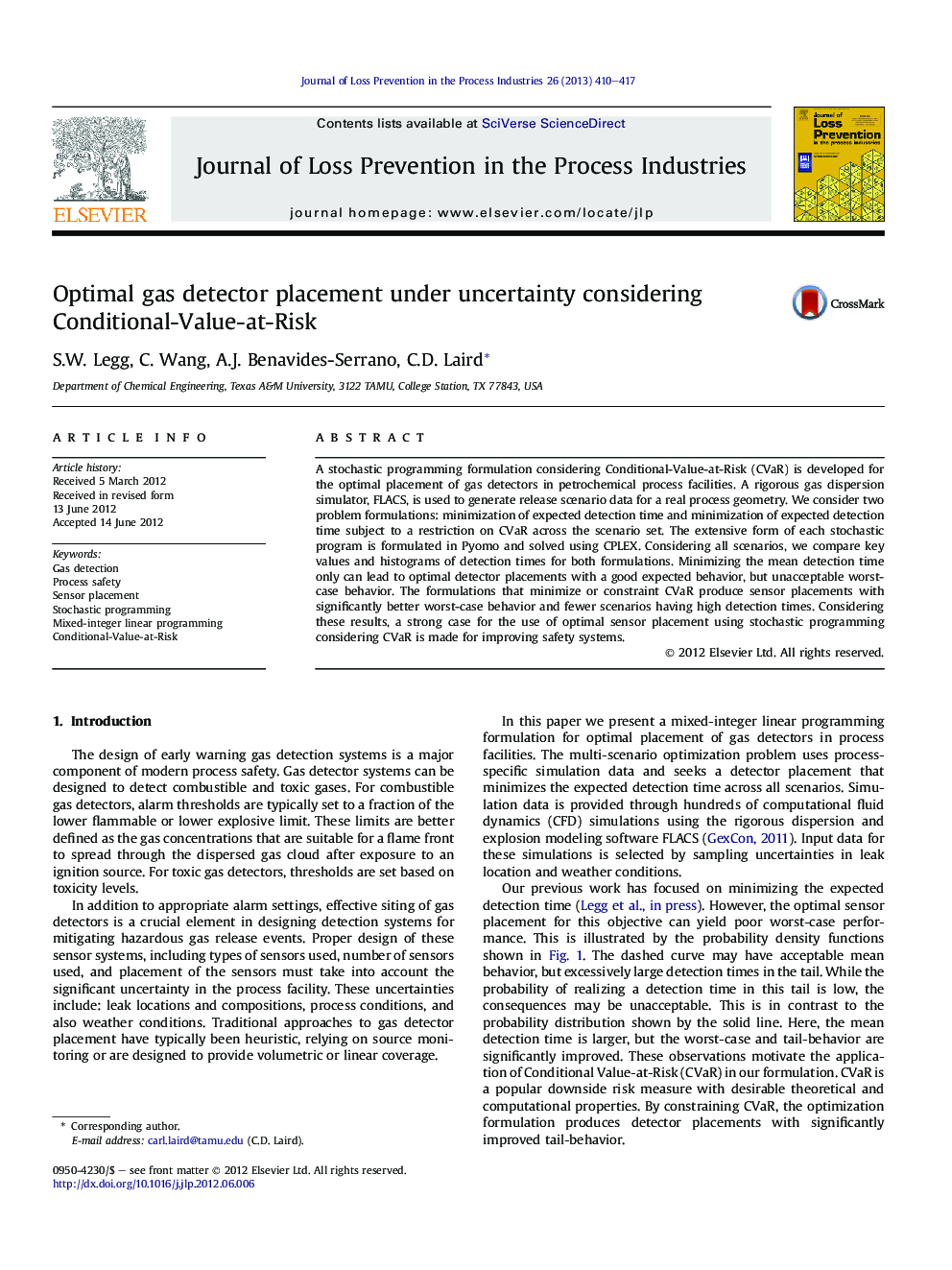| کد مقاله | کد نشریه | سال انتشار | مقاله انگلیسی | نسخه تمام متن |
|---|---|---|---|---|
| 586851 | 878235 | 2013 | 8 صفحه PDF | دانلود رایگان |

A stochastic programming formulation considering Conditional-Value-at-Risk (CVaR) is developed for the optimal placement of gas detectors in petrochemical process facilities. A rigorous gas dispersion simulator, FLACS, is used to generate release scenario data for a real process geometry. We consider two problem formulations: minimization of expected detection time and minimization of expected detection time subject to a restriction on CVaR across the scenario set. The extensive form of each stochastic program is formulated in Pyomo and solved using CPLEX. Considering all scenarios, we compare key values and histograms of detection times for both formulations. Minimizing the mean detection time only can lead to optimal detector placements with a good expected behavior, but unacceptable worst-case behavior. The formulations that minimize or constraint CVaR produce sensor placements with significantly better worst-case behavior and fewer scenarios having high detection times. Considering these results, a strong case for the use of optimal sensor placement using stochastic programming considering CVaR is made for improving safety systems.
► We develop a stochastic programming formulation for optimal gas detector placement considering CVaR.
► Pyomo, a python-based optimization framework is used to formulate the mixed-integer linear programming problem.
► Formulation with and without a CVaR constraint can be solved efficiently.
► The CVaR formulation provided much better control of worst-case behavior, with little loss in the mean.
Journal: Journal of Loss Prevention in the Process Industries - Volume 26, Issue 3, May 2013, Pages 410–417